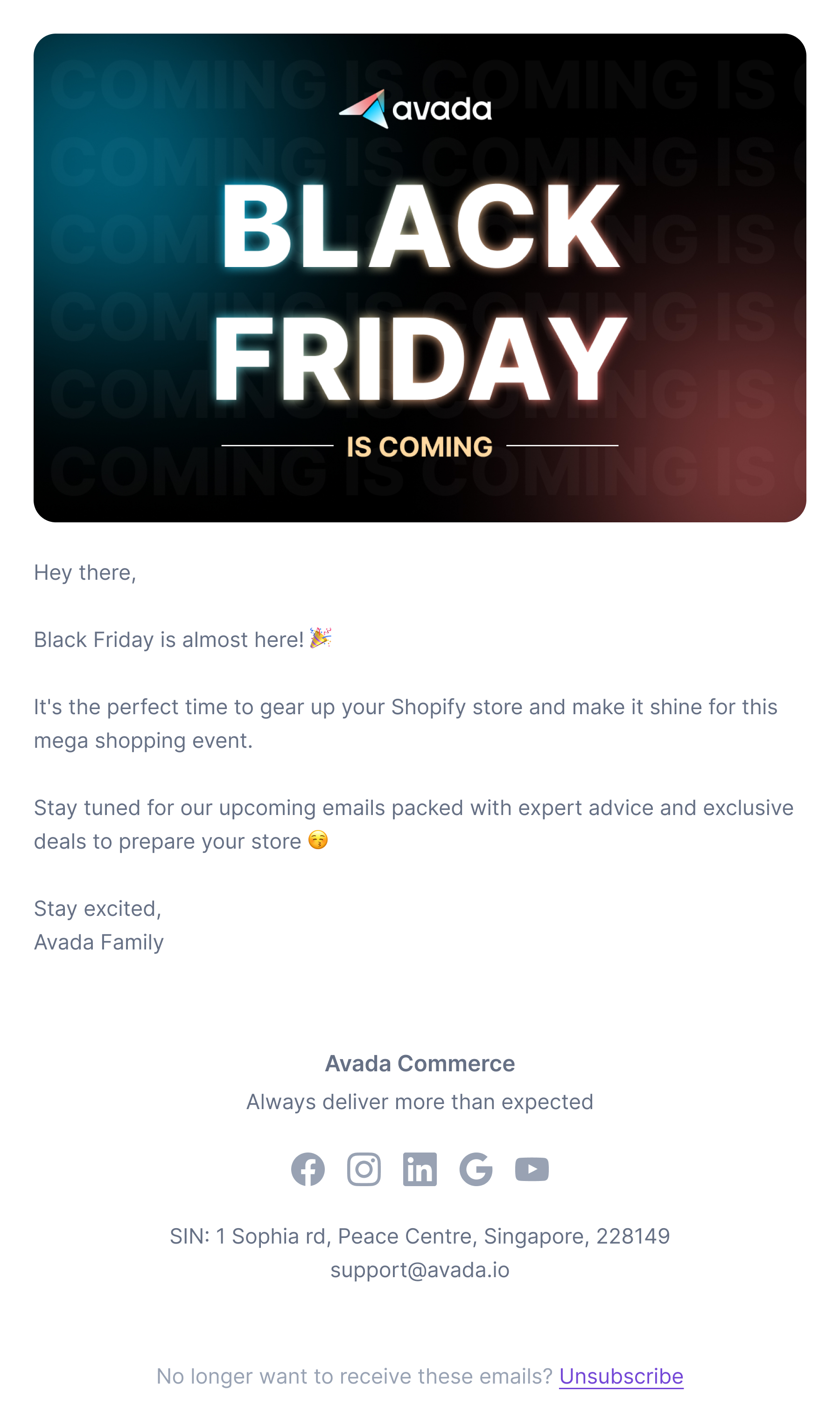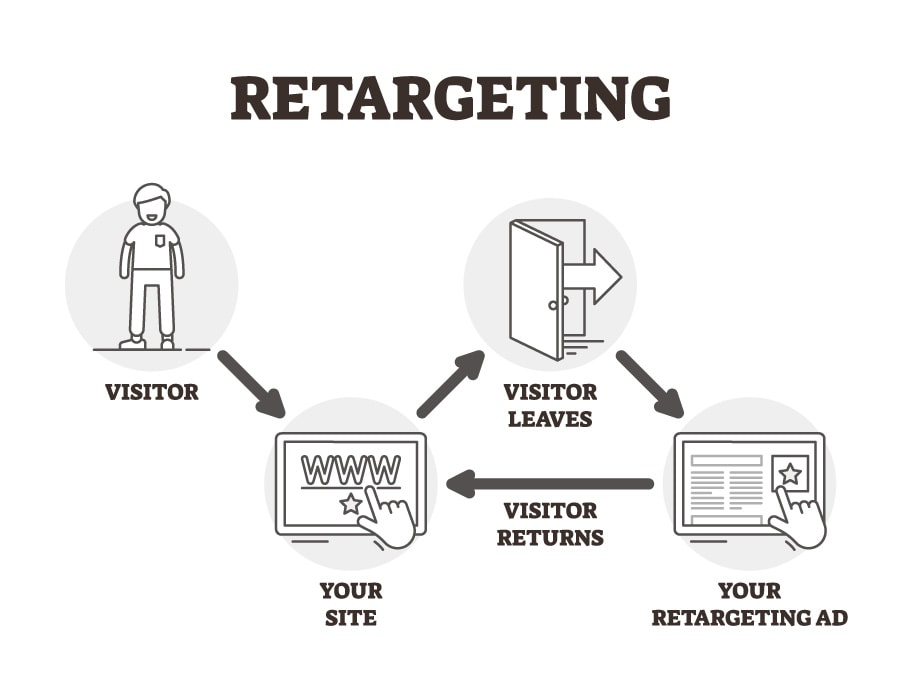Black Friday Shopify Guide: Boosting Sales with AI and Personalization

The Black Friday rush presents a tremendous opportunity for Shopify store owners. As throngs of eager customers hunt for the best deals, the challenge lies in standing out and providing a personalized shopping experience. With technology advancing at a rapid pace, AI and personalization have emerged as game-changers, helping stores not only meet but exceed customer expectations. This guide dives into the complicated world of AI and personalization, showcasing how they can increase sales, enhance the shopping experience, and ensure ethical data usage during the most awaited sale event of the year.
An overview of AI and personalization synergy
Imagine if your online store could think and feel like a seasoned shopkeeper, anticipating every customer’s needs, likes, and preferences. This is the power of blending Artificial Intelligence (AI) with personalization. It transforms your store from a simple shopping platform into an intuitive and engaging entity. Think of it like this: if your e-store was once a silent showroom, with AI it becomes an attentive assistant.

For instance, when a returning customer, visits a clothing e-store, she immediately sees winter jackets and boots, as the AI remembers her past winter purchases. And during monumental sales events like Black Friday, this tailored approach drives not just sales, but memorable shopping experiences. With such potential, it’s no surprise that AI-driven personalization is becoming the industry’s cornerstone. In fact, by integrating AI into their personalized marketing efforts, retailers are poised to save a whopping $348 billion annually. This is more than just technology; it’s the future of e-commerce.
The magic behind recommendation engines
To personalize customers’ shopping experience, let’s consider recommendation engines as behind-the-scenes sales assistants. Just as a smart store clerk remembers a customer’s preferences and suggests products accordingly, these engines, powered by AI, predict and present items tailored to individual tastes.

Select the optimal AI recommendation tool
For Shopify store owners, the marketplace is diverse with options. Among the best in the business are tools like Wiser and LimeSpot. These plugins focus deeply on user behavior, understanding browsing habits, and purchase histories to create ultra-targeted product suggestions.
Enhance product listing
A recommendation engine is only as good as the data fed into it. It’s crucial to optimize your product listings. This means clear titles, detailed descriptions, and high-resolution images that truly represent the product. For Shopify users, the Avada SEO Suite is an invaluable asset. It not only aids in SEO but ensures your listings are optimized to work in harmony with recommendation engines.
Harness the insights from recommendation data
These engines do more than just suggest products. The data they collect offers a goldmine of insights. Analyzing this information can reveal patterns, showing which products often get recommended together, which suggestions lead to the highest conversion rates, or which items rarely make the recommendation list. With this knowledge, you can adjust your inventory strategy, pricing, or promotions for specific products.
Elevating your email campaigns with AI
Email campaigns play a key role in e-commercial strategies. They’re not just messages; they’re potential conversations and reminders, especially when AI steps in to enhance their effectiveness.

Use email segmentation
Every customer is unique, and so should your approach to them. The fact is that the days of one-size-fits-all email blasts are gone. With AI, you can segment your email lists with precision. Break down your audiences based on their past purchases, their website browsing patterns, or even how they’ve engaged with past emails. This ensures that the content each subscriber receives is tailored to their preferences. For instance, a customer who recently viewed a collection of winter jackets might appreciate an exclusive discount on similar items in their inbox.
Create emails truly speaking to receivers
The solution here is to enter dynamic email content. With tools like Avada Email Marketing, Shopify store owners can craft emails that are as individual as their recipients. Depending on the data collected, emails can feature products, offers, or news that align with the subscriber’s interest. Imagine a customer who has a history of purchasing organic skincare products, receiving an email highlighting the newest eco-friendly skincare line just added to your store. Another way to approach customized emails is the implementation of custom shipping notifications tailored to your customers. This will help to highlight your brand and stimulate further purchases in the future.
Smart and timely Black Friday reminders
The hustle and bustle leading up to Black Friday can be overwhelming for customers. However, with AI-enhanced email campaigns, you can ensure your store remains top-of-mind. Schedule tailored reminders in the run-up to the big event, ensuring that not only does your message reach customers, but it does so at the moments they’re most receptive. It’s about crafting reminders that don’t just inform but engage.
Dynamic ads: making every ad dollar count
In the digital marketing arena, ads serve a dual purpose: they notify and they connect. It’s not just about getting your brand out there; it’s about making that critical connection with your audience, ensuring what they see fits their interests and needs.

Choose the ideal AI-driven ad platform
The right platform can strengthen your advertising strategy. Platforms like AdRoll come equipped with features custom-made for Shopify store owners. These AI-enabled platforms analyze user behavior and predict which ads are most likely to convert a viewer into a buyer. It’s not just about casting a wide net; it’s about casting a smart one.
Retarget with precision
Ever browsed a product online only to find it popping up in ads on various websites later? That’s retargeting in action. But with AI, this strategy gets a boost. By analyzing user interactions on your e-shop, AI can help retarget potential customers with the exact products they’ve shown interest in, encouraging them closer to a purchase. When a shopper stays on a page showcasing summer dresses but doesn’t make a purchase, AI can ensure she sees those very dresses in subsequent ads, catching her interest.
Keep ads engaging with dynamic creatives
Static ads are a thing of the past. Today, to capture user attention, ad content needs to be dynamic, adjusting based on user behavior. This means showcasing a variety of products or offers based on what a particular user might find appealing. If a customer recently bought hiking boots from your store, AI can help ensure the next ad he sees features camping equipment or outdoor apparel. It’s about keeping content fresh, relevant, and engaging.
AI-enhanced content and design
Use Chat AI for content creation
The digital age has democratized content creation, and tools like You and Bark are leading this revolution. Whether you’re updating product descriptions, churning out informative blog posts, or refining FAQ sections, these AI-driven platforms ensure that your content is not just up-to-date but also engaging. Imagine updating your winter collection descriptions; these tools can help ensure the content aligns with trending winter themes, vocabularies, and customer queries.

Empower design with AI
Every Shopify store is more than its products; it’s a canvas. And with AI tools like Jasper, this canvas can come alive in ways previously unimagined. Jasper is not just an art generator; it’s a design partner. By feeding text prompts, merchants can get back lots of design elements - be it a logo that shows the branding or illustrations that tell a story. Picture this: for a summer sale, input prompts about beaches, sunsets, and surfboards, and Jasper might just give you a design palette that transports your customers to a sunny beachside.
Insights on AI-driven content and design
Using chat AI, sellers can keep their store’s information updated and appealing to their customers. AI design tools, on the other hand, give a fresh and trendy look to online shops. But it’s important to remember: while AI can help, over-relying on it might affect your creative touch. Use AI as a tool, not a creator, ensuring your unique voice and style aren’t overshadowed.
Creating a personalized shop experience with AI
24/7 AI assistance with chatbots:
Gone are the days when customers had to wait for responses. With chatbots, like WhatsApp Chat, shoppers get instant answers, whether whether it’s a query about a product’s size or a return policy, there’s always a “representative” available.

Intelligent searching within your store
It’s frustrating to struggle to find a product on an online platform. With AI-driven tools like Boost AI Search & Discovery, when a customer types “blue summer dress,” the system understands and brings the most relevant options. It’s like having a personal shopping assistant who knows exactly where everything is.
A landing page that “knows” the visitor
Imagine if your store’s homepage changed based on who’s visiting. A fitness enthusiast might see gym gear promotions, while a book lover might be greeted with the latest bestsellers. Through AI, personalized landing pages adapt content to align with user preferences and past behaviors, making every visit feel like a custom shopping experience.
Ethical use of AI and data
In the modern e-commerce world, where data drives decisions, it’s vital to remember one guiding principle: with great power comes great responsibility. As Shopify merchants make use of AI and personalization advantages, it becomes required to treat every byte of customer data with the utmost respect and integrity.

Opt for ethical AI tools
The landscape of AI tools is vast, but not all are created equal. As a responsible store owner, it’s essential to choose platforms and plugins that champion transparent data practices. These tools don’t just use data; they ensure it’s utilized in ways that respect user privacy and preferences. When scouting for such tools, it’s wise to dive deep into their data policies and look for any third-party certifications they might hold.
Clarity in data collection
“Hidden” is a word that should never be associated with data collection. Every Shopify merchant must be upfront about the type and scope of data they gather from visitors and customers. This could mean direct notifications on the website about cookies, clear terms of service, or even pop-ups that ask users for permission before collecting certain data. A practice to follow is to give customers control over their data, allowing them to choose what they’re comfortable sharing. After all, trust is built on clarity.
Compliant GDPR and beyond:
The General Data Protection Regulation (GDPR) has set a gold standard in data protection. Regardless of where your Shopify store operates, engaging with GDPR isn’t just about compliance; it’s about showcasing commitment. This means giving users the right to access their data, the power to delete it, and ensuring data is stored and transferred securely. And while GDPR is European legislation, its principles represent global best practices. Therefore, even if your store isn’t directly under this legislation, it’s wise to comply with its guidelines.
Sum up
Differentiation is the key to success in a crowded market, especially during Black Friday. By making use of AI and personalization, Shopify merchants can offer customers a shopping experience that feels tailored and engaging. However, as we are on this exciting technological frontier, ethical considerations around data usage become vital. With this ultimate guide, store owners can not only boost sales but also foster trust and loyalty among customers. In the end, the blend of AI and personalization isn’t just about selling more products - it’s about crafting memorable, ethical, and personalized shopping journeys.
New Posts






